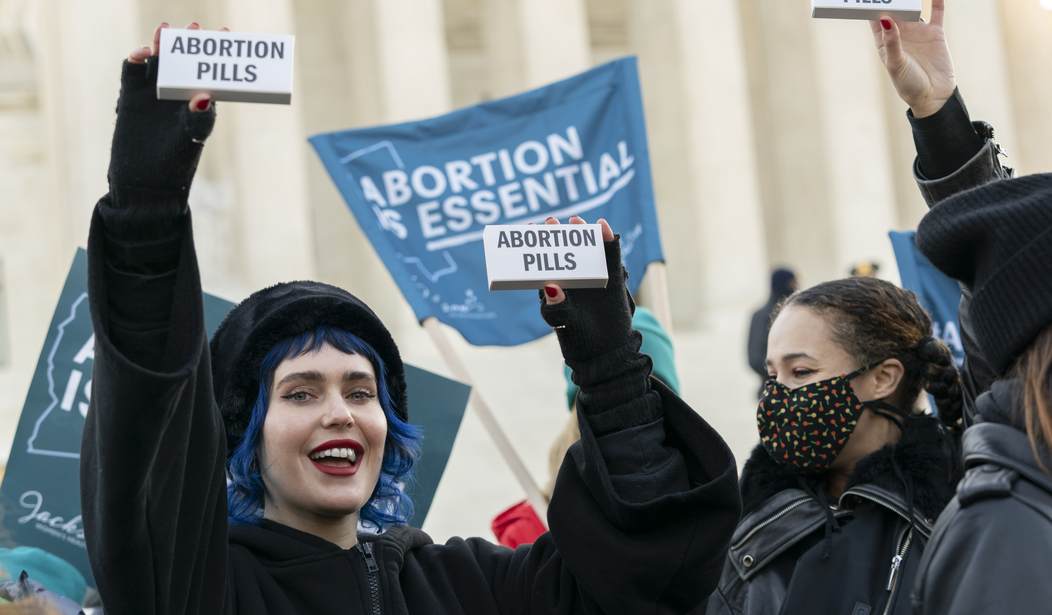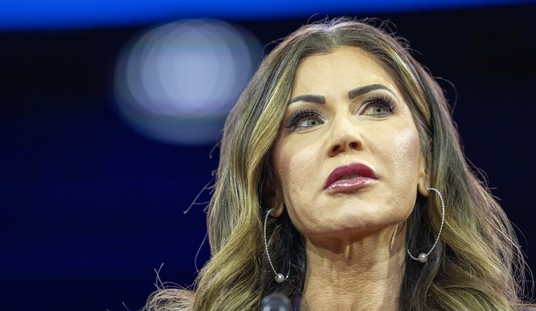The Texas law banning abortion at six weeks with a "life of the mother" exception was put to the test last week with the lawsuit brought by the Center for Reproductive Rights on behalf of Kate Cox, who was seeking to terminate her 20-week pregnancy because of an unfavorable Trisomy 18 diagnosis.
Baby Cox was diagnosed with Trisomy 18, a chromosomal disorder that could shorten her life. Dr. Karsan and Ms. Cox sought approval from the court to abort Baby Cox in Texas. A liberal judge ruled Thursday in their favor, but quickly after, the Texas Supreme Court blocked the order, therefore protecting the 20-week-old baby.
Before the Texas Supreme Court could rule, Kate Cox made the choice to leave the state in order to terminate her late-term pregnancy.
UPDATE: After a week of legal whiplash and threats of prosecution from Texas Attorney General Ken Paxton, our client Kate Cox has been forced to flee her home state of Texas to get the time-sensitive abortion care needed to protect her health and future fertility.
— Center for Reproductive Rights (@ReproRights) December 11, 2023
A Texas woman whose fetus has a fatal diagnosis and who was awaiting a decision from the Texas Supreme Court about whether she would be allowed to get an abortion said Monday that she has decided to leave Texas to get the procedure.
Kate Cox, a mother of two who is around 20 weeks pregnant, found out just after Thanksgiving that her developing fetus has trisomy 18, a fatal diagnosis. Seeking to terminate the pregnancy to protect her health and future fertility, she and her husband sought a court order to block Texas’ abortion bans from applying in her case.
A state district judge granted the request Thursday, but then the state Supreme Court temporarily paused the lower court’s order Friday. On Monday evening, the Texas Supreme Court directed the lower court to vacate its order.
First of all, let's address the reported deceptive language, namely the use of the words "flee" and "fatal."
Trisonomy 18 (or Edwards Syndrome) is not always a fatal diagnosis. It's a troubling one that can result in pregnancy complications, birth defects, and a stillborn birth. But trying to paint it solely as destructive to the child and the mother is wrong. How do we know? Because families have chosen to ignore a diagnosis or a warning and have allowed their child to go to full term. Former Senator Rick Santorum and his wife Karen made this choice in 2008. While in utero, their daughter Isabella (Bella) was diagnosed with Trisomy 18, and the odds were laid out to them: Only 10 percent of babies diagnosed with Trisomy 18 survive past birth, and of those who do, only 10 percent live to see their first birthday. The surviving babies tend to have heart and lung defects and severe intellectual limitations. The Santorums are devout Catholics (they have eight children) and chose life despite the diagnosis. Bella just celebrated her 15th birthday, and the Santorums help other families who have received this diagnosis but choose life to manage this condition emotionally and, more importantly, medically.
In large part thanks to the Santorums, Trisomy 18 is proving to no longer be the death sentence parents are told it is. The couple has been able to help other parents choose life with confidence and secure adequate health care for their children with Trisomy 18. Many doctors refuse to operate on children with the condition who often have a treatable ventricular septal defect (hole in the heart). Yet Children’s Hospital in Omaha—specifically, Dr. James Hammel—is willing to help.
“If a family didn’t want surgery for an infant with VSD or tetralogy or even pulmonary atresia, we would take them to court, take the child out of the family and take care of them,” said Dr. Hammel. But when it comes to children with Trisomy 18, many doctors consider it “cruel” to perform surgery even though they will die without it. Up to 80 percent of babies with Trisomy 18 survive heart surgery and 50 percent are still alive 16 years later, explained Dr. Hammel. With proper care, Trisomy 18 is not “incompatible with life.” Once the Santorums were able to access health care for Bella, they began to help other families as well.
So, if the Coxes had chosen to take their child to full term, they could have received medical help for Kate Cox and for the child when she arrived, no matter how long the baby might have lived.
In researching Trisomy 18, questions still arise about the path taken in reaching a diagnosis. There are testimonies of women who received the somber news that their baby has Trisomy 18 or who have undergone an ultrasound that showed certain indicators of the condition. But when these women chose to go full term and give birth, the result was a healthy, fully viable child. In 2001, RedState Deputy Managing Editor Susie Moore received such a troubled finding when she was 20 weeks pregnant with her daughter Riley.
When the cysts were observed on the ultrasound, they had a genetic specialist come in to speak with us. The gist of it was to affirm that this was not a definitive diagnosis, merely a noted correlation, and to lay out the possible complications associated with T-18. (Only 10 percent survive past birth, and of those, only 10 percent survive to their first birthday. They tend to have heart and lung defects and severe intellectual limitations, etc.) An amniocentesis was offered to make a definitive diagnosis. The option to terminate in the event of a confirmed diagnosis was heavily implied, if not explicit, but it wasn’t pushed, and I opted not to have the amnio.
Susie chose to go full-term with the pregnancy, even with that question mark hanging over Riley's birth.
I had to make peace with the fact that she could have defects, and I did that fairly quickly. I put my trust in God and knew that whatever happened, we would find a way to deal with it. I do want to emphasize something, though - I was still “pro-choice” at that point. Even while I knew abortion would never be an option I would choose for myself, I didn’t feel it was my place to make that decision for others. So, I wasn’t coming at that decision from a pro-life perspective.
Riley was born premature (due to other complications, not Trisomy 18), but she was born. Riley is now 21 years old, and a beautiful, intelligent, and thriving young lady. That's not just Susie's words: I had the opportunity to spend some time with Riley at CPAC 2022, and she is a product of her mother's love and care, which began with a step of faith and a determination to see life happen, instead of giving in to fear and the cultural norm surrounding a grave diagnosis.
Susie said about her conversation with her doctor at that time:
He wasn’t there for the ultrasound or genetic consult, which were done at the hospital. But I spoke with him on the phone later that day, and he was very reassuring. I remember him saying he almost regretted that the technology had come so far that it allowed us to see little anomalies like the cysts because, most of the time, they don’t signify anything serious and are just absorbed into the brain as the baby develops. He acknowledged the techs and specialists are obligated to share these findings, but more often than not, they worry expectant mothers/parents needlessly. I got the impression he’d fielded many a call like the one we had.
Unfortunately, whether it's the pro-life side or the pro-death side, there is an agenda that makes conversation difficult. What is necessary are actual sound policies to best support life for both the mother and child. What has occurred in Texas is troubling no matter which side you are on. There are no "winners," and the biggest loss is that Baby-Girl Cox was not given a chance to be.
I want elective abortion outlawed, but in a way that women who are facing medical emergencies can get life-saving care. I share that perspective with maybe every pro-lifer I have ever worked with. And the Kate Cox case leaves me concerned.https://t.co/jVxWswUHLI
— Secular Pro-Life (@secularprolife) December 11, 2023
Tragically, in the case of Kate Cox, the agenda bled through. Whether Cox was driving this or someone was driving Cox is yet to be seen. But it was clear the focus was to challenge the Texas law in order to create an issue that would carry into the 2024 election. Most of the posts on X are fomenting negative sentiments about Republicans and voting two of the Texas Supreme Court justices off the bench, so you cannot tell me this was not calculated by the pro-abortion lobby.
Kate Cox is losing her baby and republicans are currently attacking her.
— James Tate (@JamesTate121) December 11, 2023
That sums up how despicable they are.
As a father of two daughters, I am really pissed off at republicans. 🤬🤬🤬
Vote out republicans and get the stench off the bench.
VOTE BLUE!🌊🌊🌊 pic.twitter.com/OREST2woMj
Here is Cox speaking with "NBC Nightly News" after the lower court ruling was issued.
Kate Cox, the mother of two whose request for an abortion was granted by a Texas judge, speaks out to @NBCNews in an emotional interview after the ruling.
— NBC Nightly News with Lester Holt (@NBCNightlyNews) December 7, 2023
“We’re going through the loss of a child,” Cox says. “There's no outcome here that I take home my healthy baby girl.” pic.twitter.com/yI2fBEMvGc
“There's no outcome here that I take home my healthy baby girl,” is telling. What Cox is admitting is that she does have the opportunity to give birth to a baby girl who may have some major health challenges or may live for a short time. But because it will not be the "healthy baby girl" she desired, she'd rather abort the child.
The framing of the case was always couched in terms of the harm Cox would suffer, never about baby-girl Cox.
The tragedy of this case is compounded by the discriminatory rhetoric and logic targeting Baby Cox. The media quickly parroted the inaccurate and abhorrent notion that children with life-limiting disabilities are “failed pregnancies” and “doomed” to lives without value. The Pro-Life position honors the dignity of every single human being, regardless of their size, disability, illness, or life span. The truth is that when children with Trisomy 18 are given a chance at life, they far outlive the negative prognoses given by pro-abortion medical professionals. One doctor at the University of Michigan reports a 90% survival rate for babies born with Trisomy 18.
Babies with disabilities deserve more protection from us, not less, and at the same time, our culture should value both the mother and child.
Please join us in praying for the Cox family.
Because the legacy media puts no faith in thoughts and prayers, they gave Cox's case media coverage to the eye teeth.
JUST IN
— MeidasTouch (@MeidasTouch) December 12, 2023
The Texas Supreme Court ruled AGAINST Kate Cox, the woman who sought an abortion for a nonviable, potentially life-threatening pregnancy.
Cox fled the state of Texas earlier in the day to receive the care she needs.
No one is safe when Republicans are in power. pic.twitter.com/59EMCMtGpy
Some other information from the Texas Supreme Court's ruling also states that the argument for aborting the Cox child in order to save Kate Cox's life was not established. This was one of the reasons why the Texas Supreme Court vacated the lower court's ruling.
Kate Cox’s doctor is demanding dismemberment D&E abortion on her pain-capable, 21-week-old unborn daughter. Why? Because the baby is disabled with Trisomy 18 they don’t want her to deliver a live baby.
— Lila Rose (@LilaGraceRose) December 12, 2023
This is D&E abortion. pic.twitter.com/U2FdOBz9eJ
In this case, the pleadings state that Ms. Cox’s doctor—Dr. Damla Karsan—believes Ms. Cox qualifies for an abortion based on the medical-necessity exception. But when she sued seeking a court’s pre-authorization, Dr. Karsan did not assert that Ms. Cox has a “life-threatening physical condition” or that, in Dr. Karsan’s reasonable medical judgment, an abortion is necessary because Ms. Cox has the type of condition the exception requires. No one disputes that Ms. Cox’s pregnancy has been extremely complicated. Any parents would be devastated to learn of their unborn child’s trisomy 18 diagnosis. Some difficulties in pregnancy, however, even serious ones, do not pose the heightened risks to the mother the exception encompasses. The exception requires a doctor to decide whether Ms. Cox’s difficulties pose such risks. Dr. Karsan asked a court to pre-authorize the abortion yet she could not, or at least did not, attest to the court that Ms. Cox’s condition poses the risks the exception requires.
The law also requires that the medical diagnosis be an objective finding, and Cox's doctor, Dr. Damla Karsan, is anything but. Dr. Karsan is a plaintiff herself in a lawsuit suing the state over the constitutionality of the Texas abortion laws — another person with a pre-established agenda, which further muddies the waters of what should be a serious discussion about how true crisis pregnancies are treated by the medical establishment. The knee-jerk response is that the mother or the child will not thrive if they have stark medical or cognitive conditions. In a culture that values rights above all else, even another's life, many in the medical profession immediately opt for abortion. So, as the ruling pointed out, when "reasonable medical judgment" is lacking, the courts are expected to fill this gap. This is a faulty approach, and while it presents a rallying point for either side to align themselves, it does not address how to maintain and promote life for mother or child.
Dr. Karsan asserted that she has a “good faith belief” that Ms. Cox meets the exception’s requirements. Certainly, a doctor cannot exercise “reasonable medical judgment” if she does not hold her judgment in good faith. But the statute requires that judgment be a “reasonable medical” judgment, and Dr. Karsan has not asserted that her “good faith belief” about Ms. Cox’s condition meets that standard. Judges do not have the authority to expand the statutory exception to reach abortions that do not fall within its text under the guise of interpreting it. The trial court erred in applying a different, lower standard instead of requiring reasonable medical judgment.
Here is the conversation that needs to be had: Why do we wish to discard children, especially potentially special-needs or health-challenged children, rather than do all we can to help them survive and thrive, no matter how long that might be? Why do we not give families making this difficult decision the support necessary to see life not as an option but as the only quality choice?














Join the conversation as a VIP Member